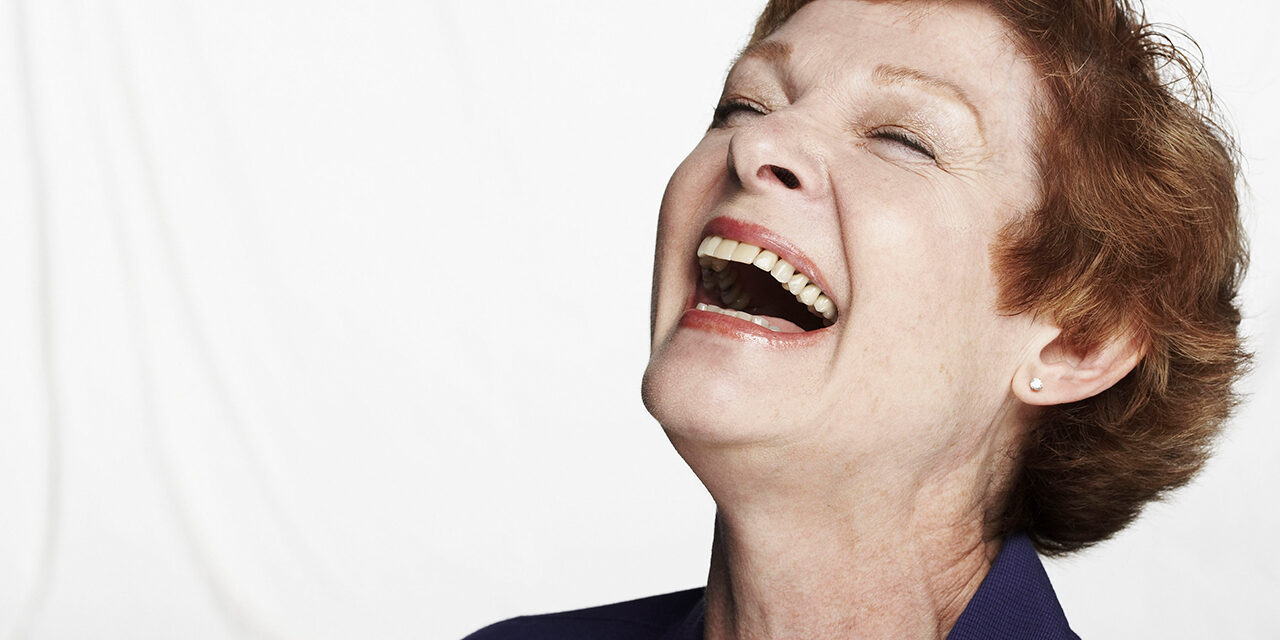By Kathy Montero
In parts one and two of “The 3 Things I Wish I’d Known When I Became a Caregiver,” I shared strategies for pacing yourself for the care-giving marathon and expanding your support network. In this third and final piece, I hope to impart the significance of finding joy through humor. As caregivers, our lives are full of material for comedians and late-night talk show hosts, but sometimes it’s hard to see the comedy in the absurdity of our situations and the heaviness of the responsibilities.
My first job in the healthcare field was a paramedic. When I started clinical rotations in college, I observed some of the seasoned staff joking around and laughing after a serious case. Once the patient had been sent to the operating room, their seemingly jovial attitudes immediately following a life or death situation seemed completely inappropriate to me. How could they possibly joke about anything while a person’s life hung in the balance? I later shared with my professor the ‘insensitivity’ of these professionals, expecting him to ask for names and take notes. Instead, he very wisely explained to me that when you deal with difficult, unthinkable, heartbreaking situations every day, you must find a healthy way to cope with the stress or you will burn out and not last in the profession. These people weren’t callous, they were releasing pressure, so they could continue to help others day in and day out. The same is true for family caregivers, perhaps even more so since they don’t usually get days off. The stress can lead to burnout if we don’t find a healthy way to blow off some steam. For me, humor has become a wonderful coping tool, even if at times it may seem inappropriate.
Sharing the often ridiculousness of the situations we find ourselves in allows us to be honest about the difficult realities we face and how we cope with it. For example, my dad has advanced Alzheimer’s, but is still in very good physical health. It is a challenge to keep him engaged and active with his cognitive impairment. Giving him simple household tasks is a good way to keep his hands busy (and out of trouble) while allowing him to feel useful. This is where having a good sense of humor and accepting that his help is usually not helpful at all is vital. He is rather skilled at putting clean silverware away – provided you don’t mind he lick and then dry each piece. He also has been known to dust furniture with shoe polish. My first instinct might be to get upset about the newly stained furniture, but instead, I have found it more helpful to frame it as a funny story I can share with my support group. In his defense, he was left unsupervised. That’s on me.
Sometimes those who are being cared for need to laugh as well. When things get too tense, a well-timed joke or laugh can relieve the tension. When my father-in-law was staying with us after we learned his cancer was terminal, his doctor prescribed a liquid medication to help keep him comfortable. Apparently, it tasted terrible, and he began referring to it as his ‘poison’. Every time I would bring him his medicines or something to drink, he would jokingly ask if I was giving him more poison. On the surface, it might seem awkward that a dying man was describing his medication as poison, but it lightened the mood and allowed us all to relax and laugh a bit during a very difficult time.
Don’t get me wrong, it’s still hard, but those little periods of laughter and levity, even if it’s just to myself, make the days lighter, easier, and less stressed. Somedays I still break down in tears, and that’s ok. But laughter intermingled with the sadness is so much better than tears alone.
I will close this series with a story that embodies all three components of Things I Wish I’d Known When I Became a Caregiver:
A few years back, I was desperately trying to get my routine mammogram checked off my To-Do list. My father-in-law was living with us at the time, and he couldn’t be left alone. I had arranged for someone to come sit with him for the hour and half or so it would take me to go get the test done. However, the respite care provider could not administer any medications nor assist him with toileting, so I had to hurry back home. While I was, quite literally, in the mammography machine, the fire alarm sounded in the building. Trust me, of all the places you don’t want to be when the fire alarm goes off, that machine is toward the top of the list. So, after the technician verified it’s not a drill, I was immediately escorted outside along with several other women wearing hospital gowns as tops. I had finally squeezed in (pun intended) time to take care of my health and now I was standing outside while firemen swarmed around. After what seemed like forever, I decided there was no way I would have time to go back inside and finish my mammogram before my father-in-law needed me. Defeated, I walked back to my car carrying my clothes in a plastic bag. As I drove home in my pink gown, I pondered how I would convince a police officer I had not just escaped from a local hospital if I got pulled over. Sure, I was unhappy that I had just wasted more than an hour but finding the humor in the situation provided not only a lighter perspective, but it allowed me to return home to my responsibilities and loved ones with a genuine smile on my face.


